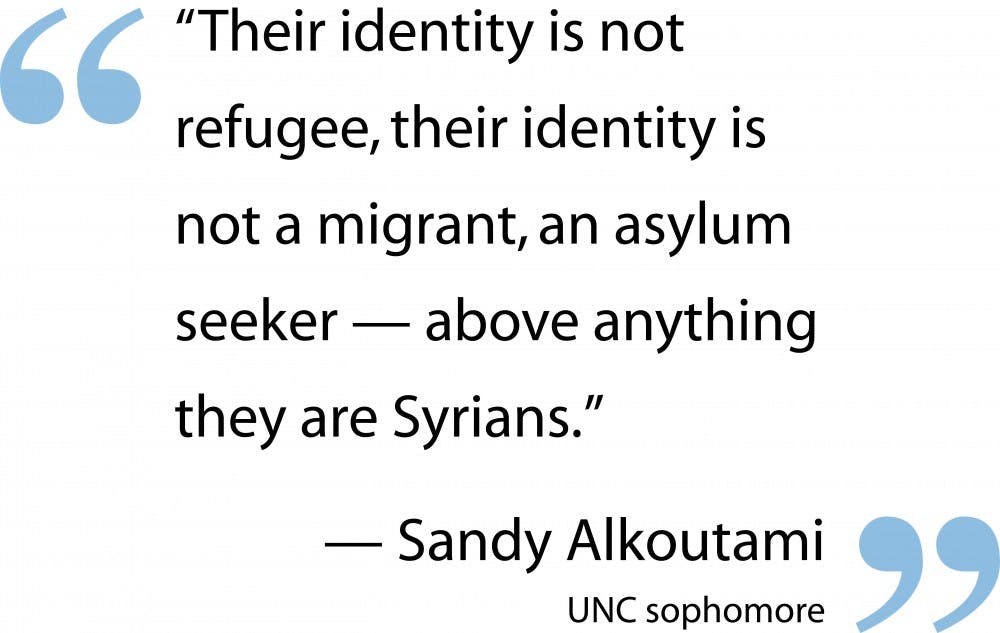Despite their attempts to reconstruct home, Alkoutami said the refugees live in poor conditions, lacking basic necessities like electricity.
“It was very clear that Syrians were trying to recreate their version of a Syria in this absurd environment,” she said. “You can have someone be physically, externally displaced from their country. But if you’re proud or close to your national identity, you can’t be displaced from that itself.”
Almost 100,000 Syrians are living in refugee camps in Jordan, and around 4.1 million have fled Syria since the Syrian Civil War began in 2011. Syrians account for half of the 381,412 refugees arriving by sea in Europe this year alone.
The large number of deaths during sea travel as well as refugees and migrants arriving each day into Europe have raised questions about the EU’s response to the crisis.
Niklaus Steiner, director of UNC’s Center for Global Initiatives, said the controversy lies in how nations and international law define a refugee.



